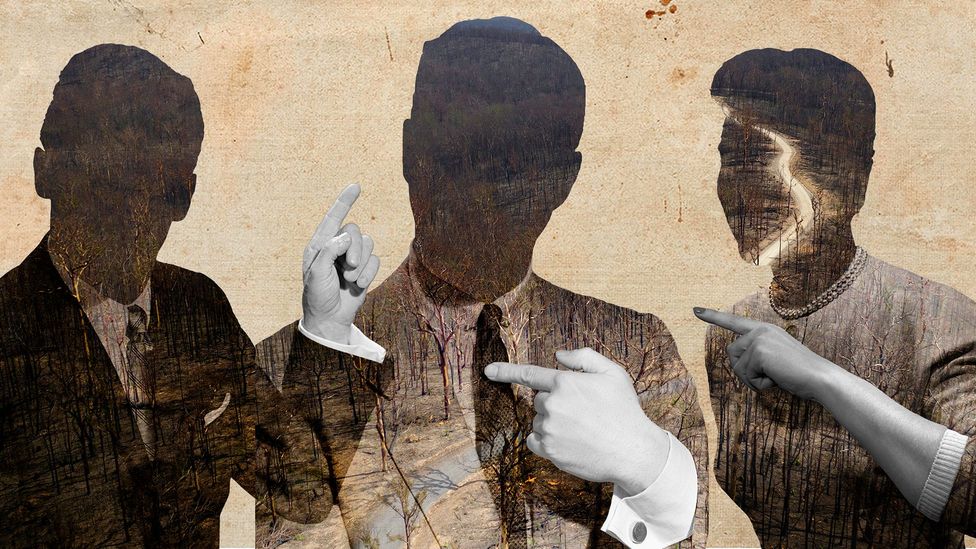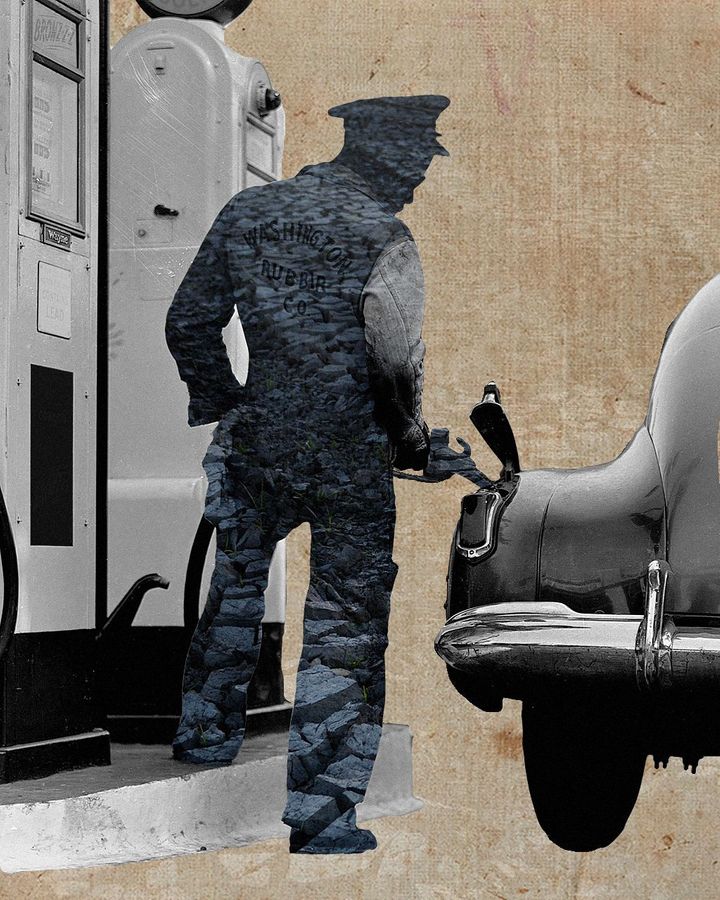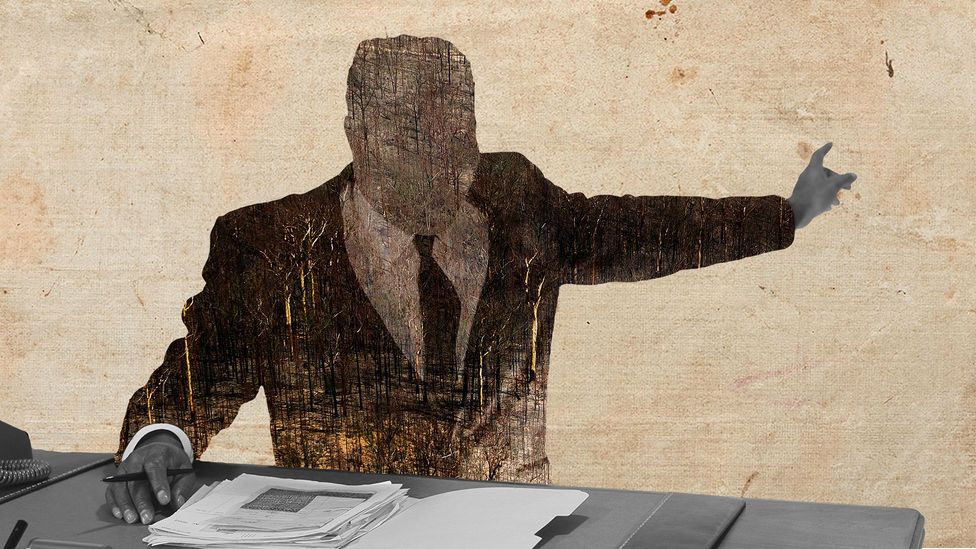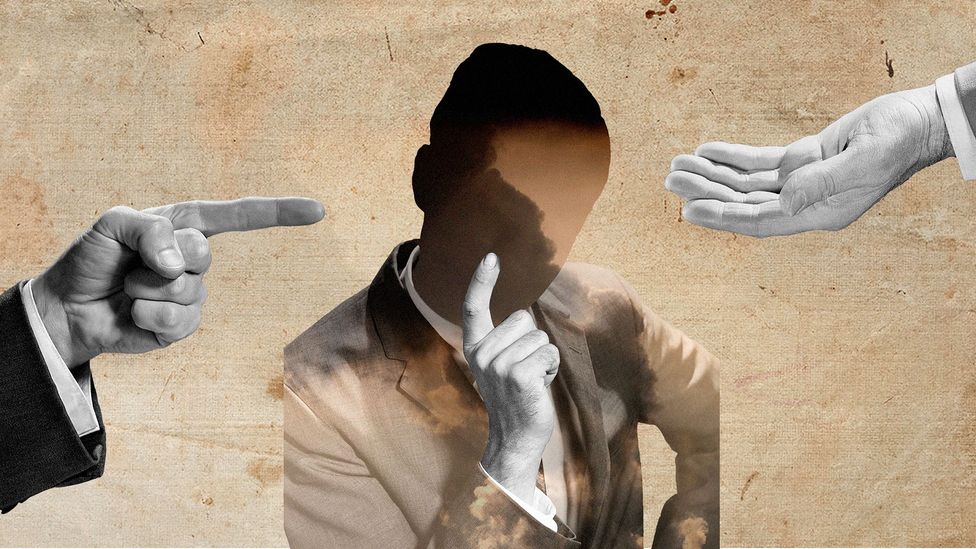How Much Does It Cost To Fix Power Seats
Who is really to blame for climate change?
(Image credit:
Javier Hirschfeld/ Getty
)

We know that climate change is caused by human activity, but pinning down exactly who is responsible is trickier than it might seem.
O
One of the most frustrating things about the climate crisis is that the fact that earlier action could have prevented it. With every passing year of inaction, the emissions cuts needed to limit global warming to relatively safe levels grow steeper and steeper.
Many groups have been accused of being at blame for this ongoing lack of action, from fossil fuel companies and wealthy countries, to politicians, rich people and sometimes even all of us.
Others may feel it's not useful to blame anyone. "If you want to engage with the non-converted and get them to want stronger climate action, blaming them is not going to be a very fruitful pathway," says Glen Peters, research director of the Center for International Climate and Environment Research in Oslo.
Whether we label it blame or not, the question of who is responsible for the climate crisis is a necessary one. It will inevitably impact the solutions we propose to fix things.
But it's also important to acknowledge that allocating emissions to someone – the extractors of fossil fuels, the manufacturers who make products using them, the governments who regulate these products, the consumers who buy them – does not necessarily mean saying they are responsible for them.
You might also like:
- How flight shame is changing travel
- How we mourn a changing planet
- The wild places that heal climate burnout
For example, many people across the world lack access to a steady, clean electricity supply and instead use high-emission diesel generators to generate electricity. You can allocate these emissions to the people using the generators, but it is hard to say they are to blame for them.
"You're just slicing through the system at one end of the supply chain versus the other," says Julia Steinberger, professor of ecological economics at the University of Leeds. "That alone is not enough to allocate blame."

A tiny proportion of firms are responsible for the lion's share of carbon emissions (Credit: Javier Hirschfeld/Getty)
Amy Westervelt is a climate journalist who has spent years exploring the thinking behind big oil's strategy over the past decades, most recently in her podcast Drilled. She says there was a point in the late 1970s when oil companies in the US like Exxon appeared to be embracing renewables and increasingly viewing themselves energy companies, rather than just oil companies. But this mindset had changed completely by the early 1990s due to a series of oil crises and changing leadership, she says. "There was this real sort of shift in mindset from 'If we have a seat at the table, we can help to shape the regulations,' to 'We need to stop any kind of regulation happening.'"
Fossil fuel firms have since done "a great job" of making any kind of environmental concerns seem elitist, adds Westervelt. For example, Rex Tillerson, the Exxon chief executive who went on to be US secretary of state, repeatedly argued that cutting oil use to fight climate change would make poverty reduction harder. "They have this talking point that they've been trotting out since the 1950s, that if you want to make that industry cleaner in any way, then you're basically unfairly impacting the poor. Never mind that the costs don't actually have to be offloaded on to the public."
At the same time, fossil fuel companies have long employed PR tactics in a bid to control the narrative around climate change, says Westervelt, pushing doubts about the science and working to influence how people understand the role of fossil fuels in the economy. "They have put a real emphasis on creating materials for social studies, economics and civics classes that all centre the fossil fuel industry," says Westervelt. "I think there's a real lack of understanding about just how much that industry has shaped how people think about everything, and very deliberately so."
A small group of scientists with links to right-wing think tanks and industry have for decades distorted public debate by sowing doubt on well-established scientific knowledge in the US, including on climate, according to Merchants of Doubt, the 2010 exposé by historians Naomi Oreskes and Erik Conway. "Ever since scientists first began to explain the evidence that our climate was warming – and that human activities were probably to blame – people have been questioning the data, doubting the evidence and attacking the scientists who collect and explain it," they write.

Scientific evidence that emissions from human activity would cause climate change has a surprisingly long history (Credit: Javier Hirschfeld/Getty)
It's also worth remembering that the very concept of a personal carbon footprint was popularised by a wide-reaching 2005 BP media campaign. "It was the most brilliant example of 'It's your fault, not ours,'" says Westerwelt. "It's a framework that serves them really well because they can just say 'Oh well, if you really care then why are you driving an SUV?'"
Rich people
Concentrating on the influence of fossil fuel companies in the failure to reduce emissions means focusing on where the supply chain starts and the push to keep extracting fossil fuels. But we can also look at where it ends – the people who consume the final products from fossil fuels, and, more specifically, those who consume a fair bit more than the rest.
A recent international study from the University of Leeds calculated that, across 86 countries, the richest 10% of people consume around 20 times more energy than the poorest 10%. A big portion of this heightened consumption by richer people is through transport, the study found: flights, holidays and big cars driven long distances.
So do studies like this lay the blame for climate change at the doors of rich consumers? Yes and no, says Steinberger, who co-authored the paper.
Yes, because rich people do have far more choice in how they spend their money. "If you're rich enough to afford a big car, you're also rich enough not to afford a big car. If the lifestyles that rich people choose to lead are very ostentatious and wasteful, they definitely have responsibility over this," says Steinberger. Rich people also tend to be more influential in government and in the companies driving government policy, she says. "In general, if we're talking about who has the power to make decisions, it's probably rich people in different roles."
But also no, says Steinberger, because even high consumers live within a system that enables, and even rewards, their consumption.

People with high-carbon lifestyles live in a broader system that encourages consumption (Credit: Javier Hirschfeld/Getty)
Recent events have helped put the impact of individual action into perspective. Even at the height of the coronavirus pandemic in April, with many countries in lockdown, daily global CO2 emissions fell 17% compared with 2019 levels. The drop is certainly major – emissions were temporarily comparable to 2006 levels – but the fact it was not even more gives an insight into how much deeper emissions cuts need to go than the lifestyle changes available to individual people.
The real importance of studies showing individual carbon footprints is not to point the blame at certain consumers, but to shed a light on the best way to make policies to cut emissions. For example, says Steinberger, it would be foolish to expect to drive decarbonisation of people's homes on the basis of taxes, because home energy is a basic good that everyone needs. Large-scale public investment in renewable energy and energy efficiency would make more sense, she says.
On the other hand, taxing the luxury products rich people tend to disproportionately overconsume, such as flights, does make sense, she adds.
Rich countries
Widening out the frame from individual consumption, another way climate blame is often apportioned is by looking at which countries emit the most. The question of whether richer, historically more polluting countries should take more responsibility for climate change than others has long been a sore point at international climate negotiations.
Back in 1992, when the first international climate treaty was signed to set up a framework for future climate negotiations, it included an important – and yet, to some, still contentious – principle. The treaty acknowledged that countries had different historic responsibilities for emissions, as well as varying abilities to reduce them going forwards.
The world's richest countries have released the vast majority of emissions, and many continue to emit many times more than poorer ones. The US has emitted far more CO2 than any other country: a quarter of all emissions since 1751 have occurred there. Despite China's huge rise in emissions over the past decade, emissions per person still sit at less than half those of the US, while the one billion people living in Sub-Saharan Africa each emit one-twentieth of the average person in the US.

A quarter of all emissions since the Industrial Revolution have been in the US (Credit: Javier Hirschfeld/Getty)
However, negotiations to divvy out the deep emissions cuts the world needs in a "fair" way have proven a political nightmare, with richer, more polluting countries backing out of strong commitments and talks falling through time and time again. Eventually, a different approach was developed: countries would sign up to a set of common, overarching climate goals, but self-assign their own emission reductions targets, based on whatever they felt able to promise. This was the approach taken in the 2015 Paris Agreement, where countries agreed to limit global temperature rise to "well below 2C" and strive to limit it to 1.5C, but refrained from setting out exactly who should do what to get there. The treaty recognises that reaching peak emissions will take longer for developing than developed countries, and sets up a system for ramping up country pledges over time.
The problem is that wealthy countries still have an "emissions debt" to other countries due to their principal responsibility for climate change, argues Mohamed Adow, director of energy and climate think tank Power Shift Africa and a well-known voice at international climate conferences. Rich polluters should not only reduce their own emissions, but also deliver on promises of finance and technology to help poorer countries develop via a lower carbon path, says Adow, as well as supporting them to deal with climate impacts which are already locked in.
"At the heart of an effective regime should be a fair process for sharing the effort between countries in a way that is sustainable," says Adow. "Addressing climate change requires urgent action by all people certainly, including rich and poor, but with wealthy countries taking the lead."
However, Adow is still cautious about assigning blame to richer countries. "You wouldn't want to start with a frame of going out and blaming the US," he says. "But you will go with a frame that allows you to talk about the Earth and atmosphere as shared global commons that should be fairly enjoyed by all, including the poor, future generations and all life."
Not all climate experts think more focus on assigning the fair share of emissions reduction to countries is the best way to ensure global emissions are cut. After all, this is the very strategy that has proven so difficult to negotiate in the past. "Basically, countries have to be seen by their peers to be doing enough, not necessarily to be perfect," says Peters. "Don't let perfect be the enemy of good."
"Us"
Whether or not you think emissions cuts should be negotiated internationally, few would argue against the need for richer countries to take more responsibility. So what does that mean for those of us living in these rich countries? Do we all need to take more responsibility for our countries' emissions? Are we to blame for climate change?
If you look at the system in a certain way, yes we are. For many of us, the products and energy we consume can be linked to a hefty – and unsustainable – portion of emissions.

Some researchers argue that the idea of "us" being responsible for climate change is a confusing concept (Credit: Javier Hirschfeld/Getty)
But it is crucial to also acknowledge that we are all part of a bigger system that not everyone is equally complicit in holding up. "The we responsible for climate change is a fictional construct, one that's distorting and dangerous," writes climate scholar and author Genevieve Guenther. "By hiding who's really responsible for our current, terrifying predicament, [the pronoun] we provides political cover for the people who are happy to let hundreds of millions of other people die for their own profit and pleasure."
What Guenther is saying boils down to the question of who holds the power to create and change the systems that cause climate change. If you can only afford a home in an edge-of-town housing estate without access to public transport, is it really your fault for becoming dependent on a car?
"Just because you can allocate [emissions] to an entity or to a location in a supply chain, does not mean that the power of agency lies with that entity or that location in the supply chain," says Steinberger. "If you're thinking about these supply chains, are you going to say that final consumers actually have the final decision-making over everything that happens upstream? Who is actually taking the damaging decision?"

The question of blame is a useful one to find the most effective and fairest solutions to climate change (Credit: Javier Hirschfeld/Getty)
Power differences between countries also play a strong role in the outcomes of international climate talks, says Adow. "Sadly, the countries that have the greatest historical responsibility for climate change continue to have the greatest influence on the climate regime," he says. "They are effectively abusing their power."
But even viewing climate inaction through this lens of power, those who have less of it can still act to confront it. Climate activist Greta Thunberg embodied this when in 2019 she told elites gathered in Davos that many of them were to blame for the climate crisis by sacrificing "priceless values" to "continue making unimaginable amounts of money". As one academic essay puts it: "To avoid [confronting] power is to risk condoning a system that is inherently unsustainable and unjust."
We may or may not feel that the blame for the climate crisis should be placed at someone's door. But whether we call it blame or not, it is still crucial that we untangle the structures of power and decision-making that continue to promote climate inaction. Only by better understanding how to change these can we hope to make the emissions cuts we now need so badly.
--
Jocelyn Timperley is a freelance climate change reporter. You can find her on Twitter @jloistf.
--
Join one million Future fans by liking us on Facebook , or follow us on Twitter or Instagram .
If you liked this story, sign up for the weekly bbc.com features newsletter , called "The Essential List". A handpicked selection of stories from BBC Future , Culture , Worklife , and Travel , delivered to your inbox every Friday.
How Much Does It Cost To Fix Power Seats
Source: https://www.bbc.com/future/article/20200618-climate-change-who-is-to-blame-and-why-does-it-matter
Posted by: inmansuce1958.blogspot.com

0 Response to "How Much Does It Cost To Fix Power Seats"
Post a Comment